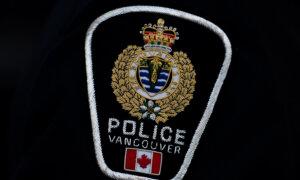The president said he will bring up the idea of annexing Canada as the 51st state during his meeting with Carney.
WASHINGTON—President Donald Trump will host Canada’s new Prime Minister, Mark Carney, at the White House on Tuesday for high stakes talks focused on trade and security.
The meeting comes amid heightened tensions between the two allies, following Trump’s imposition of steep tariffs on Canadian products and ongoing remarks suggesting that Canada should become the 51st U.S. state.
This marks the first meeting between the two leaders since Carney’s Liberal Party secured victory in the April 28 federal election.
“He called me. He was very nice and I congratulated him,” Trump told NBC’s “Meet the Press” on Sunday, referring to a post-election phone call with Carney.
Trump said he will bring up the idea of Canada becoming the 51st state during his meeting with the Canadian prime minister.
“I’ll always talk about that, you know, why we subsidize Canada to the tune of $200 billion a year,” he said. “If Canada was a state, it wouldn’t cost us, it would be great. It would be such a great—it would be a cherished state.”
Canada along with Mexico were excluded from Trump’s international reciprocal tariff regime as both countries are already subject to 25 percent tariffs due to ongoing U.S. concerns over illegal migration and fentanyl trafficking. The tariffs made an exception for Canadian energy products and potash, which were instead hit with a lower 10 percent tariff.
Additionally, the United States maintains a 25 percent tariff on steel and aluminum imports and a 25 percent tariff on all automobile imports, with an exemption for U.S. content. These tariffs have a significant impact on Canada.
On May 4, Trump also announced plans to impose a 100 percent tariff on foreign-made films, a move that could affect Canada’s film industry.
In retaliation, Canada has implemented 25 percent tariffs on certain U.S. goods, including steel and aluminum products and auto imports.
“Again, remember this, we don’t need their cars, we don’t need their lumber, we don’t need their energy. We don’t need anything,” Trump said during the NBC interview. “We do very little business with Canada. They do all of their business practically with us. They need us, we don’t need them.”
U.S. Commerce Secretary Howard Lutnick downplayed the likelihood of reaching a trade deal with Canada during the upcoming meeting, describing the situation “very complex.”
“They have their socialist regime and it’s basically feeding off of America,” Lutnick said, in reference to the Liberal Party of Canada.
Trump dismissed the idea of lifting tariffs during the NBC interview, saying, “I wouldn’t do that because if somebody thought they were going to come off the table, why would they build in the United States?”
When asked whether he would consider using military force to annex Canada, Trump said such a scenario is “highly unlikely.”
“I think we’re not going to ever get to that point. It could happen. Something could happen with Greenland, I’ll be honest. We need that for national and international security,” Trump said.
“I don’t see it with Canada. I just don’t see it, I have to be honest with you.”
Following his election win, Carney had a phone call with Trump. On April 30, Trump said that the candidate who hated him “the least” had won the election. Trump had earlier said the Liberal government under Justin Trudeau was “nasty” in his first term as president but that he would prefer to deal with a Liberal than a Conservative government this time around.
Trudeau stepped down after Minister of Finance Chrystia Freeland announced her resignation from his cabinet in a public letter in mid-December, objecting to Trudeau shuffling her out of her role as finance minister and saying the government needed to be more responsible with spending.
The incident, along with declining support for the Liberals in the polls, led to more public calls within the Liberal caucus for Trudeau’s resignation, which he agreed to early this year.
Carney, who started his career in the private sector, worked as a public servant before becoming the governor of the Bank of Canada from 2007 to 2013, and then the Bank of England from 2013 to 2020.
He later joined the private sector again, serving on the boards of a number of organizations. He also served as the U.N. Special Envoy on Climate Action and Finance. He has said he resigned from all roles before becoming a candidate in the Liberal leadership race in January.
Omid Goreishi and Noe Chartier contributed to this report.
Original News Source Link – Epoch Times
Running For Office? Conservative Campaign Consulting – Election Day Strategies!


